What is the Ethiopian Commodity Exchange? What role does ECX play in Ethiopian Coffee Trade
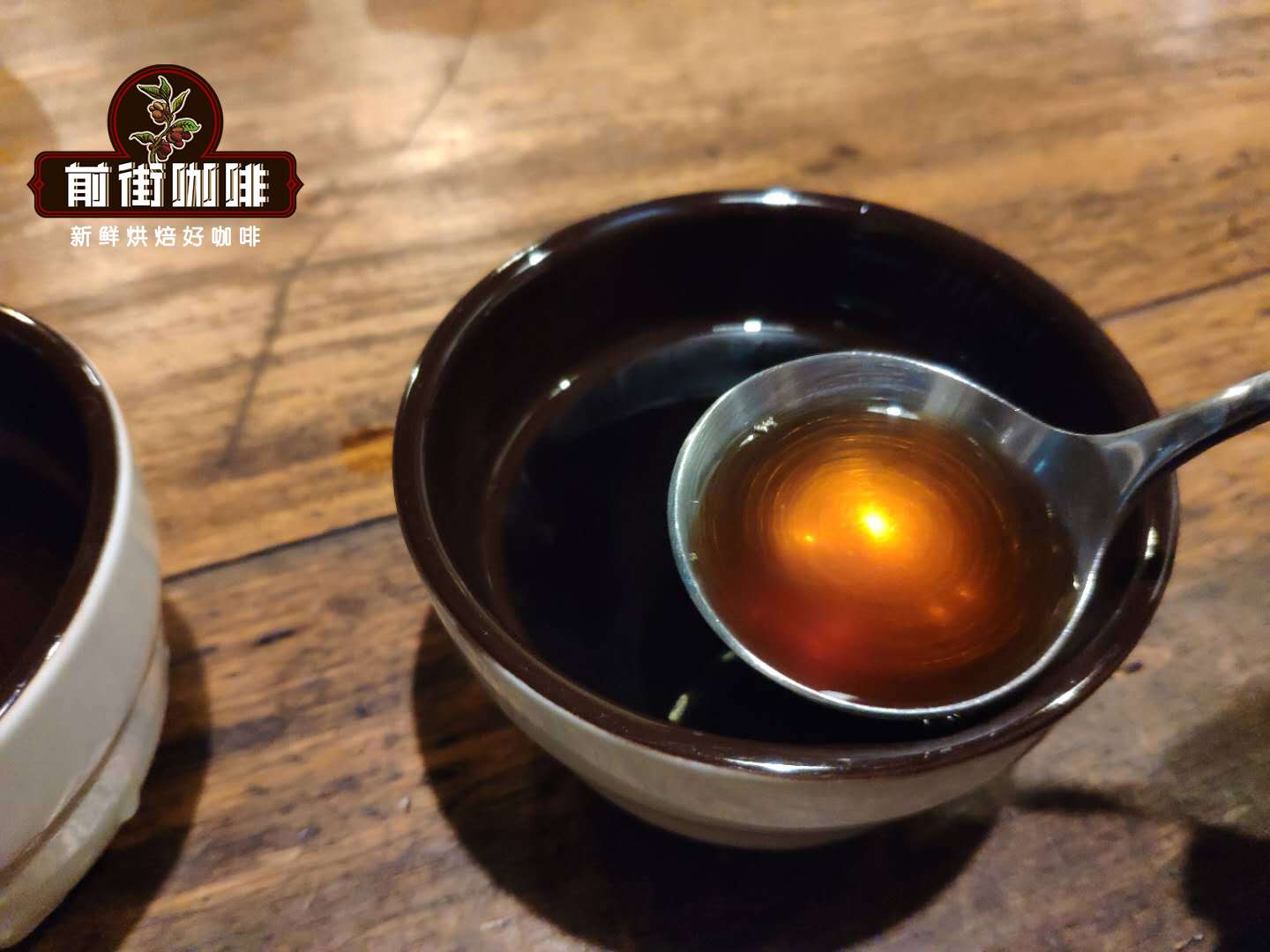
The Ethiopian Commodity Exchange (ECX) is the national multi-commodity exchange in Ethiopia, through which most of the country's coffee is traded. Since its establishment in 2008, it has been the subject of praise and criticism in the entire coffee industry.
Although adjustments have been made to the way ECX operates, the views of the industry as a whole remain uneven. For many people outside Ethiopia, it is not clear who will benefit or what the role of ECX will be.
Explore ECX
In 2007, economist Eleni Gabre-Mahin attended the famous TED speech outlining her ambitious vision of building the first commodity market in Ethiopia. She became chief executive of the new Ethiopian Mercantile Exchange in 2008, helping to create the only commodity exchange in Africa at the time.
Today, Malawi, Rwanda and Ghana also operate commodity exchanges, but the Ethiopian Exchange is the first of its kind. It is widely believed that the country has successfully modernized its economy, linked smallholder farmers to the market and enhanced food security.
ECX is a partnership between market participants, exchange members and the Ethiopian government. Its mission is to "bring integrity, safety and efficiency to the market and create opportunities for unprecedented growth in the commodity industry".
However, coffee is not suitable for a wide range of commodity categories. The quality differences in the coffee industry (including commercial, high-end and specialty markets) complicate the purchase of coffee.
This requires both producers and traders to need more skills, and popular commodity markets may not have enough skills to cover them.
How does ECX benefit producers and buyers?
Prior to the establishment of ECX, many Ethiopian coffee producers had little or no access to adequate credit, market information and commodity transportation, as well as many other important resources. For many Ethiopian farmers, including coffee producers, ECX has become the way forward after years of hardship and hardship.
Price transparency
Samuel Demis, the owner of Keffa Coffee in Baltimore, told me that he imported a lot of Ethiopian specialty coffee.
"I was born and raised in Ethiopia," Samuel explained. "my father is a coffee farmer. At that time, there was no technology. If you're lucky, the only way you can hear the price of coffee is through the radio once a day. Farmers know nothing about the price of coffee. It's really hard. "
However, when ECX is launched, it regularly publishes NYSE coffee prices on monitors in coffee-producing areas. All of a sudden, farmers know what is happening to the global price of the products they trade. They can also use futures prices to inform them of their planting decisions.
This is a transparency revolution that enables Ethiopian producers to have more agency in their selling prices and business strategies.
Insurance and stability of producers
Samuel told me that the "most important thing" about ECX is that farmers get the money immediately.
Exporters who want to trade through ECX must first transfer funds to their ECX account. This provides a guarantee that the cleaning station or any farmer who sells coffee will get a profit the next day.
"before that, they had to wait for the money-sometimes as long as three or six months. There is no safety or guarantee, "he said.
Payments made through ECX are also electronic, which means that producers no longer have to wait for cheques or wire transfers to be passed. Instead, the funds are automatically deducted from the exporter's ECX account.
In addition, standardized contracts can encourage higher quality and to some extent eliminate the risk of breach of contract or unreliable supply. The ECX model also has a "price floor" scheme, which limits the value of coffee from falling below a certain point and seriously affecting producers.
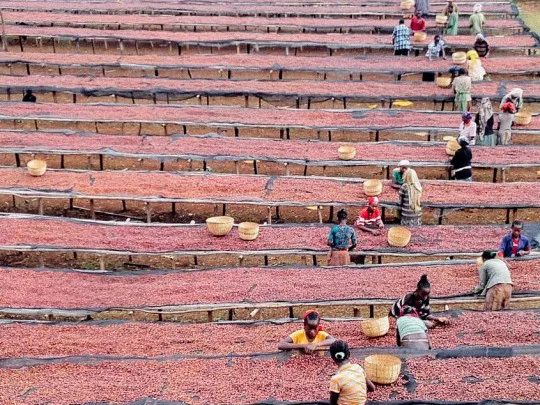
Security and consistency of buyers
When using ECX, you can guarantee that the buyer can deliver the coffee immediately. In addition, ECX regulations ensure that the goods traded meet the minimum quality requirements.
Although this has been criticized because it is reported that high-grade coffee is not always graded correctly, the system seems to be effective for commercial coffee.
Centralized systems also make it easier for foreign buyers because communications are simple, well-regulated and often automated.
Coffee transportation and market access
Samuel told me that before ECX, farmers had to bring coffee from the countryside to Addis Ababa, where auctions would take place.
After the manufacturer arrives, the coffee can be left on the truck for auction within seven days. If it is not sold, the farmer must rent a warehouse to store it and rent a hotel room until it is sold. In some cases, it can take up to eight months, Samuel said.
Today, however, ECX ensures that the seller's coffee is shipped, which is stored in the ECX warehouse in Addis Ababa. Centralized markets also increase market access for producers, making it easier for them to access domestic and international markets.
Finally, the recent cross-exchange online auction has further improved logistics. This even means that many Ethiopian producers are more resilient to the impact of the Covid-19 pandemic than most.
What is "vertical integration"? Why is it recently allowed by ECX?
In this case, vertical integration refers to an agreement between exporters and producers that allows direct trade without using the ECX trading platform.
Kenean Dukamo is the export manager of Daye Bensa Coffee. He explained that ECX continued to implement its price floor plan only for quality control purposes.
But it was not until recently that vertical integration was effectively banned and all Ethiopian coffee had to be traded through ECX. However, in recent years, both SCAA and specialty coffee buyers have expressed concern about unreliable grading, poor quality control and lack of traceability.
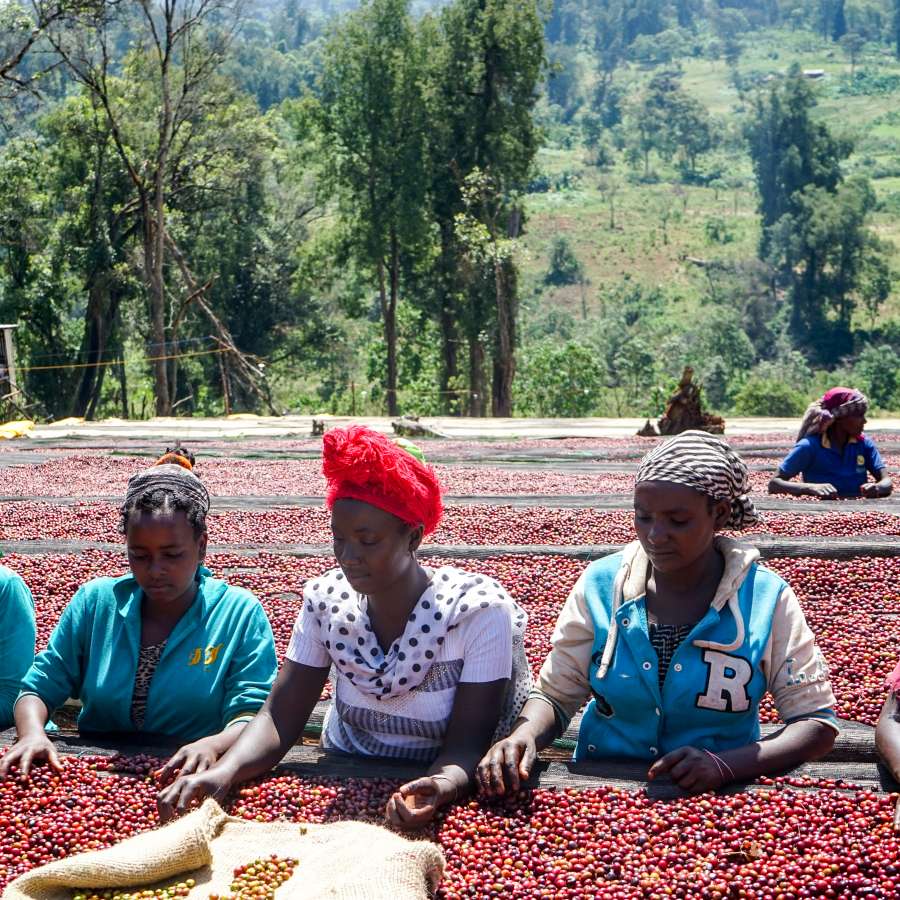
In response, the Ethiopian Coffee and Tea Authority relaxed the rules in 2017 and allowed vertical integration. Exporters can now set up their own warehouses so that they can better control the sampling, grading and overall quality of the coffee they bring in. Dialogue with producers and increased traceability. It is recognized as a good choice for buyers of premium and specialty coffee.
Kenean explains that producers can also benefit from vertical integration because they can reach predetermined prices with buyers for their crops. This is a guarantee that the ECX platform does not provide, as coffee is auctioned between different crops and may not be available for sale.
Since coffee prices may fluctuate, it is important to determine sales volume and certainty. Samuel said: "my father had a stroke because of the fluctuation in the price of coffee. You may make money this year, but next year, you don't know. Uncertainty can kill you. " By loosening the rules slightly and introducing vertical integration, ECX provides a solution for producers to some extent.
However, through vertical integration, payments are no longer centralized, which means that the immediate payment guarantee provided by ECX will be lost. In addition, contracts are no longer standardized, increasing the risk of default by both parties.
How can ECX better provide specialty coffee?
It is widely believed that ECX has successfully improved the lives of coffee growers and contributed to the Ethiopian economy. However, many stakeholders agree that there are still ways to further improve it.
Better traceability
Kenean points out that although traceability has been improved through vertical integration, it is still not perfect.
He said that through better organization at the sampling and warehouse level, as well as digitization of records and procedures, they could be improved to make it easier for buyers to obtain information about crops and farms.
Quality control and cup testing ability
Sara Yirga is the founder of YA Coffee Roasters in Addis Ababa. "as a baker and professional coffee actor, the only thing I care about is grading," she said. Is the technology of the ECX can sealer really up to standard? "
ECX has a great responsibility for quality control. All coffee transactions in Ethiopia (whether through the platform or not) must go through the grading system. However, both Sara and Kenean are concerned about the ECX grading system and its can capacity.
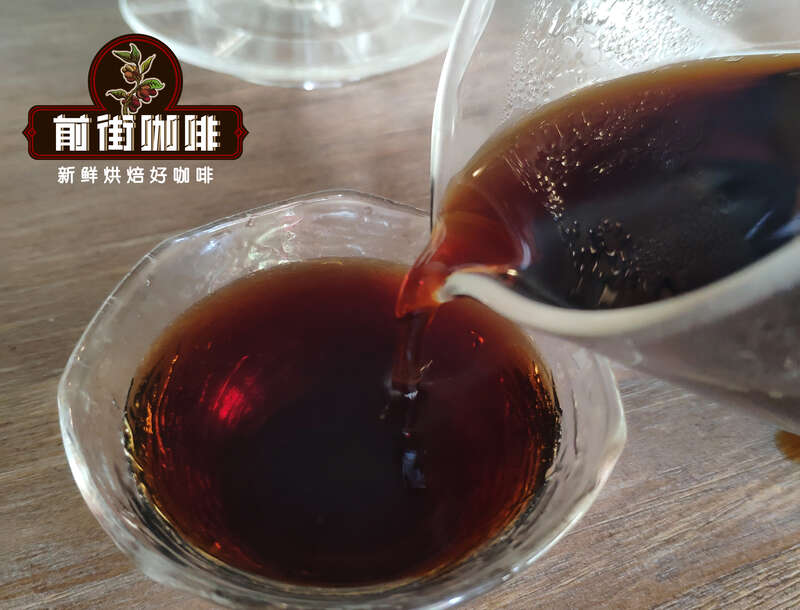
They told me that differences occur frequently, especially when it comes to specialty coffee, which can be a problem in managing buyer expectations.
Better international market access
Finally, Samuel added that while ECX has helped many manufacturers enter the domestic market, it still needs to focus on international market access.
"ECX needs to unite all exporters to take advantage of electricity and international market access," he said. " "Ethiopian exporters are still too divided, which weakens the position of Ethiopian coffee in the global market."
When ECX was first launched, it changed the lives of Ethiopian farmers, providing them with more security and protection. It has also played an important role in promoting what is now the fastest growing economy in East Africa.
However, despite some successes, ECX is not a perfect system. Since coffee is Ethiopia's largest export (about 1/4 of all exports), it seems worthwhile to adjust the already successful platform.
Today, ECX has become an excellent market for goods, including commercial coffee. However, through modernization and continuous cooperation, it can become a favorable platform for the production of high-quality and specialty coffee. By introducing vertical integration, we have seen a huge step in this direction-only time will tell whether it will continue.
Important Notice :
前街咖啡 FrontStreet Coffee has moved to new addredd:
FrontStreet Coffee Address: 315,Donghua East Road,GuangZhou
Tel:020 38364473
- Prev
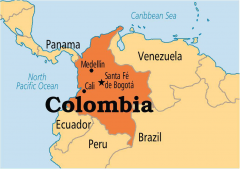
What is the flavor of Colombian coffee bred by volcanic soil? Colombian coffee treatment
Professional coffee knowledge exchange more coffee bean information please follow the coffee workshop (Wechat official account cafe_style) Colombia sits on heaven-given mountains and good water, rich landforms, clusters of volcanoes, fertile soil, abundant Rain Water, Qianjie believes that this is a heaven-made coffee wonderland. From 2008 to 2011, Colombian coffee beans won the championship in the SCAA Cup Test Competition for four consecutive years.
- Next

Will the epidemic affect the price of coffee in 2020? what is the difference in the packaging and transportation of coffee in the new season?
The Covid-19 pandemic has affected the entire coffee supply chain. Coffee shops around the world had to close, bakers began to focus on online sales and subscription programs, and consumers drank more coffee at home than ever before. However, for some people in the coffee industry, the main logistical problem is the transportation of raw coffee. Delays in farms and ports have been
Related
- Beginners will see the "Coffee pull flower" guide!
- What is the difference between ice blog purified milk and ordinary milk coffee?
- Why is the Philippines the largest producer of crops in Liberia?
- For coffee extraction, should the fine powder be retained?
- How does extracted espresso fill pressed powder? How much strength does it take to press the powder?
- How to make jasmine cold extract coffee? Is the jasmine + latte good?
- Will this little toy really make the coffee taste better? How does Lily Drip affect coffee extraction?
- Will the action of slapping the filter cup also affect coffee extraction?
- What's the difference between powder-to-water ratio and powder-to-liquid ratio?
- What is the Ethiopian local species? What does it have to do with Heirloom native species?

